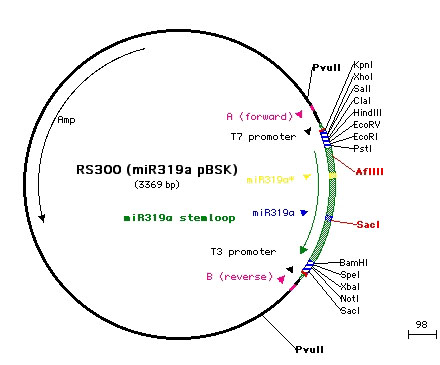04ORD214 PAGE 8 04ORD214 NOVEMBER 10 2004 IN RE
04ORD214 PAGE 8 04ORD214 NOVEMBER 10 2004 IN RE
04-ORD-214
04-ORD-214
Page
04-ORD-214
November 10, 2004
In re: Dr. Tresa Croney White/Department of Corrections
Open Records Decision
At issue in this appeal is whether the Department of Corrections violated the Kentucky Open Records Act in denying the request of Tresa Croney White, D.M.D., for copies of “all business associate agreement[s] the DOC has with ChemReview, . . . and Veracity.xmnetwork.com,” and “all signed consents from James Michael White with the DOC” for “confidential health care information & social security number to be transmitted via internet or fax.” Because no records exist which are responsive to Dr. White’s request, the DOC discharged its statutory duty by so advising Dr. White in “clear and direct terms.” With respect to the former category of records, the DOC properly relied upon KRS 197.025(2), incorporated into the Open Records Act by virtue of KRS 61.878(1)(l), as an alternative basis for denying access since any such agreement would not contain a “specific reference” to James Michael White, the inmate on whose behalf Dr. White apparently submitted the request.
“Pursuant to HIPPA and Fed[eral] Law 42 CFR 2,” Dr. White requested copies of the specified records on a standardized form directed to the DOC Office of Legal Services on October 1, 2004. By letter dated October 9, 2004, Dr. White initiated this appeal alleging that the DOC had not responded to her request as of that date, a copy of which was forwarded to the DOC via facsimile on October 1, 2004, with the original being sent via first class mail on October 4, 2004. Upon receiving notification of Dr. White’s appeal from this office, Emily Dennis, Staff Attorney, Office of Legal Services, Justice and Public Safety Cabinet, responded on behalf of the DOC.
On Monday, October 4, 2004, Ms. Dennis “received and logged in the open records request Dr. White sent by facsimile dated October 1, 2004.” Sometime later during the week of October 4, 2004, Ms. Dennis “also received the original request as mailed by Dr. White, together with a Power of Attorney from James Michael White to Tresa Croney White, and $4.00 in postal money orders from state inmate James Michael White, #074673,” copies of which are attached to her response on behalf of the DOC along with a copy of the DOC’s initial response dated October 11, 2004.1 As correctly observed by Ms. Dennis, the DOC has five business days upon receiving an open records request within which to determine whether the record shall be released pursuant to KRS 197.025(7).2 “In compliance with KRS 197.025(7),” the DOC responded to Dr. White’s request by letter dated October 11, 2004, enclosing her money orders “because there are no records responsive to her request” for the specified “business associate agreements” nor “signed consents from James Michael White.” As further observed by Ms. Dennis:
It was clear to me from Ms. White’s request, the enclosed money orders from inmate James Michael White, #074673, and the Power of Attorney enclosed in her letter that she was attempting to acquire contractual records of the [DOC] on behalf of a state inmate. Therefore, I further relied upon KRS 197.025(2) to deny access to any agreement the [DOC] has with the “unstated testing lab” or veracity.xmnetwork.com.
* * *
By its express terms, the department is not required to provide records to inmates unless the record requested specifically references the inmate requester. Although the statute does not specifically provide that the department shall not be required to provide records requested on behalf of an inmate, to hold that the [DOC] must comply with requests sent by third parties on behalf of inmates would circumvent the intent of the statute and allow inmates to access records not otherwise available to them simply by designating a power of attorney to act [on] their behalf.[3]
We agree. In advising Dr. White that no responsive records exist in a timely fashion, the DOC fulfilled its obligation under the Open Records Act.4 Likewise, the DOC’s interpretation of KRS 197.025(2) is supported by governing precedent.
In denying Dr. White’s request, the DOC advised Dr. White that it does not have a “business associate agreement” with ChemReview or Veracity.xmnetwork.com. To the extent any agreement does exist between the DOC and Veracity.xmnetwork.com or the “unstated lab” referenced by Dr. White on the facsimile cover sheet, the DOC further advised Dr. White “this record is exempt from disclosure to you pursuant to KRS 61.878(1)(l) and KRS 197.025(2).” As to the remaining records requested by Dr. White, “there are no records responsive to [Dr. White’s] request.” Accordingly, the DOC returned the two money orders enclosed with her request to Dr. White.
As long recognized by the Attorney General, a public agency is not required to honor a request for records which do not exist. 04-ORD-036, p. 5; 03-ORD-205; 02-ORD-118; 01-ORD-36; 99-ORD-198; 98-ORD-200; 97-ORD-17; OAG 91-112; OAG 87-54; OAG 83-111. It stands to reason that the DOC cannot produce for inspection or copying that which it does not have. 02-ORD-118, p. 3. To clarify, the right to inspect attaches only after the requested records are “prepared, owned, used, in the possession of or retained by a public agency.” KRS 61.870(2); 02-ORD-120, p. 10; 04-ORD-205. In addressing the obligations of an agency denying access to public records on this basis, the Attorney General has observed:
[A]n agency’s inability to produce records due to their nonexistence is tantamount to a denial and . . . it is incumbent on the agency to so state in clear and direct terms. 01-ORD-38, p. 9 [citations omitted]. While it is obvious that an agency cannot furnish that which it does not have or which does not exist, a written response that does not clearly so state is deficient.
02-ORD-144, p. 3; 04-ORD-205.
Accordingly, this office has held that a public agency’s response violates KRS 61.880(1) “if it fails to advise the requesting party whether the requested record exists,” with the necessary implication being that an agency discharges its duty under the Open Records Act by affirmatively so indicating as the DOC did here. 98-ORD-154, p. 2, citing 97-ORD-161, p. 3; 04-ORD-046, p. 4; 03-ORD-205, p. 3.5 It is not “incumbent on this office to conduct an investigation in order to locate records whose existence or custody is in dispute.” 01-ORD-36, p. 2; 04-ORD-205. Rather, the role of the Attorney General in adjudicating an open records dispute is defined by KRS 61.880(2),6 and this office is without authority to deviate from that statute. Although there are occasions when the Attorney General requests that an agency substantiate a denial based on the nonexistence of requested records by demonstrating the efforts undertaken to locate the records or explaining why no such records were generated consistent with the mandate of KRS 61.8715,7 further inquiry is not warranted on the facts presented. To the contrary, the record on appeal contains no evidence establishing that the DOC is legally obligated to generate or maintain records of the type requested. Because the DOC “cannot furnish that which it does not have” and affirmatively indicated as much to Dr. White in a proper and timely fashion, the DOC has fully discharged its statutory duty relative to her request.
Assuming for the sake of argument that agreements of the type described do exist, the same result would follow since the DOC properly invoked KRS 197.025(2), incorporated into the Open Records Act by virtue of KRS 61.878(1)(l),8 as a basis for denying access. KRS 197.025(2) currently provides:
KRS 61.872 to the contrary notwithstanding, the department shall not be required to comply with a request for any record from any inmate confined in a jail or any facility or any individual on active supervision under the jurisdiction of the department, unless the request is for a record which contains a specific reference to that individual.
As amended in 1998, this provision authorized correctional facilities to withhold a record from an inmate unless the record “pertain[ed] to that individual.” 98-ORD-150, p. 3. In 2002, the General Assembly further narrowed the scope of public records available to inmates by stipulating that correctional facilities and jails are only required to disclose those records containing “a specific reference” to the requesting inmate as correctly argued by the DOC here. 04-ORD-015, p. 3; 03-ORD-073, p. 3. “The net effect of [the 2002] amendment has been to further curtail the inmate’s right of access to records maintained by the [DOC] and correctional facilities” under its jurisdiction. 03-ORD-073, p. 3. See also 04-ORD-015; 03-ORD-091; 03-ORD-007. To this extent, the identity of the requester is directly relevant since inmates no longer have “the same right to inspect public records as any other person” as a result of the amendments to KRS 197.025(2), at least with respect to records in the custody of the DOC and facilities under its jurisdiction. 99-ORD-161, p. 3.
Because a business agreement between the DOC and another party such as those identified does not contain a specific reference to Mr. White as required by the current version of KRS 197.025(2), Mr. White is not entitled to inspect or receive copies of those records, directly or indirectly. As in 02-ORD-82, objective indicia exist to establish an “identity of purpose” between an inmate and the requester, namely, the Power of Attorney and the postal money orders from Mr. White to the Kentucky State Treasurer. Our conclusion is not altered by the fact that Dr. White requested the records, presumably acting on behalf of Mr. White.
Where, as here, sufficient objective indicia exist to establish an identity of purpose between an inmate and a non-inmate, this office will not require disclosure of records to the latter, thereby undermining the purpose for which KRS 197.025(2) was enacted.
Id., p. 5, citing 00-ORD-182, p. 5.
A party aggrieved by this decision may appeal it by initiating an action in the appropriate circuit court pursuant to KRS 61.880(5) and KRS 61.882. Pursuant to KRS 61.880(3), the Attorney General should be notified of any action in circuit court, but should not be named as a party in that action or in any subsequent proceeding.
Gregory D. Stumbo
Attorney General
Michelle D. Harrison
Assistant Attorney General
#398
Distributed to:
Tresa Croney White, D.M.D.
440 East 18th Street
P.O. Box 1001
Hopkinsville, KY 42241-1001
Emily Dennis
Justice & Public Safety Cabinet
Department of Corrections
Office of Legal Services
2439 Lawrenceburg Road
P.O. Box 2400
Frankfort, KY 40602-2400
1 In relevant part, the DOC’s initial response mirrors its supplemental response.
2 Accordingly, the DOC did not violate the Act in this regard.
3 KRS 197.025(2) provides:
KRS 61.872 to the contrary notwithstanding, the department shall not be required to comply with a request for any record from any inmate confined in a jail or any facility or any individual on active supervision under the jurisdiction of the department, unless the request is for a record which contains a specific reference to that individual.
4 Upon receiving the DOC’s supplemental response, Dr. White replied via letter dated October 16, 2004, a copy of which was received by this office on October 18, 2004. Attached to Dr. White’s reply is a copy of both her request and the DOC’s initial response. Dr. White requested the records “as a free tax paying citizen of Kentucky.” Acknowledging that the DOC did respond to her request, Dr. White contends that Mr. White was also “a free tax paying citizen of Kentucky” when the alleged violations of his privacy occurred. Being a healthcare professional, Dr. White is “obligated to report such incidents.” Dr. White denies requesting the records on Mr. White’s behalf contrary to the evidence of record.
5 On numerous occasions, the Attorney General has expressly so held. 04-ORD-205, p. 4; 04-ORD-177, p. 3, citing 04-ORD-036, p. 5; 03-ORD-205, p. 3; 99-ORD-98.
6 KRS 61.880(2)(a) provides:
If a complaining party wishes the Attorney General to review a public agency’s denial of a request to inspect a public record, the complaining party shall forward to the Attorney General a copy of the written request and a copy of the written response denying inspection. If the public agency refuses to provide a written response, a complaining party shall provide a copy of the written request. The Attorney General shall review the request and denial and issue within twenty (20) days, excepting Saturdays, Sundays, and legal holidays, a written decision stating whether the agency violated the provisions of KRS 61.870 to 61.884.
7 In relevant part, KRS 61.8715 “finds an essential relationship between the intent of [the Open Records Act] and that of KRS 171.410 to 171.740, dealing with the management of public records, . . . “
8 Pursuant to KRS 61.878(1)(l), the following public records are excluded from the application of KRS 61.870 to 61.884 absent a court order authorizing inspection: “Public records or information the disclosure of which is prohibited or restricted or otherwise made confidential by enactment of the General Assembly.”
- 71 COGNITIVE AND PERSONALITY RUNNING HEAD INDIVIDUAL DIFFERENCES IN
- CORRELATES OF MEN’S UTILIZATION OF REPRODUCTIVE HEALTH SERVICES AND
- MATT 2531 46 JAG ÖGNADE VID ETT TILLFÄLLE EN
- INSTRUCTIVO NUEVO SISTEMA DE ARV UTILIZACION DEL SIMACARS DEBIDO
- 2 APYLINKIŲ TEISMŲ TEISĖJŲ SĄJUNGA ASOCIACIJA KODAS 302201581 LAISVĖS
- PENA DE LLIBRE A BENALMÁDENA (MÀLAGA) COM EN MOLTS
- 2012 AÑO BICENTENARIO DE LA BANDERA NACIONAL LEY 6941
- RULE 38A APPENDIX 3C ANNOUNCEMENT OF BUYBACK (EXCEPT
- KAUNO TADO IVANAUSKO ZOOLOGIJOS MUZIEJUS KAUNO TADO IVANAUSKO ZOOLOGIJOS
- PRUEBA DE SELECTIVIDAD CURSO 201516 ESTRUCTURA
- PLIEGO DE CLÁUSULAS ADMINISTRATIVAS PARTICULARES CLÁUSULA PRIMERA OBJETO Y
- NAME CLASS DATE LAB DNA EXTRACTION
- 7 REPUBLIKA HRVATSKA DRŽAVNI URED ZA UPRAVLJANJE DRŽAVNOM IMOVINOM
- INFORMACIÓ I PROPOSTA DE FUNCIONAMENT GENÈRIC D’UNA APIMA L’ASSOCIACIÓ
- Vous Allez Avoir une Pose de Picc Line Madame
- LA LLENGUA ALS INICIS DEL SEGLE XIX LA NOSTRA
- Application for Employment an Equal Opportunity Employer all Applicants
- NOMBRE DE LA EMPRESA ESPECIFICACION TECNICA SISTEMA DE DETECCION
- LỊCH THI ĐẤU HỘI THAO CÔNG ĐOÀN TRƯỜNG ĐẠI
- INITIALS DATE FEE PERMIT NO IF REQUIRED DID APPLICANT
- RETURN TO THE TUTORIALS MENU PAGE CHECKING YOUR
- ATS ANTO TRANSLATION SERVICES SAS DI RICAGNO MARIA ANTONIETTA
- II MAŁOPOLSKI KONKURS CHEMICZNY DLA GIMNAZJALISTÓW ETAP II (REJONOWY)
- REKAPITULASI PENGGUNAAN DANA PENELITIAN JUDUL PENGEMBANGAN MODEL PEMBELAJARAN
- Campaña de Concienciación “tú Puedes Hacer” el ies Puerto
- GUÍA PORTAGE I PROGRAMA DE AUTOAYUDA DE 0 A
- LOST RECEIPT VERIFICATION FORM THIS FORM IS TO BE
- SECTION 15250 – PIPE DUCT AND EQUIPMENT INSULATION PART
- FRIDAY – THE BEST DAY OF THE WEEK الجمعة
- COURS D’HISTOIRE CH 3 DE LA GUERRE FROIDE
Sample Cover Letter [your Name] [your Affiliation] [your Address]
GS00M03PDC0004 DATA ELEMENT DICTIONARY J1 – DATA ELEMENT DICTIONARY
 VNĚJŠÍ HAVARIJNÍ PLÁNY A JEJICH VZTAH K OCHRANĚ OBYVATELSTVA
VNĚJŠÍ HAVARIJNÍ PLÁNY A JEJICH VZTAH K OCHRANĚ OBYVATELSTVACOMMITTEE ON THE RIGHTS OF PERSONS WITH DISABILITIES UNITED
WYKŁADNIA DYREKTYWY WYKŁADNI DZIELIMY NA DYREKTYWY I I II
KOMANDOS REGISTRACIJOS KORTELE GRUPE APPLICATION FOR ENTRY GROUP TURNYRAS
UNIVERSITY SYSTEM OF NEW HAMPSHIRE VOLUNTEER APPOINTMENT LETTERS [DATE]
RÚBRICA PARA LA EVALUACIÓN DEL TFG (TRIBUNAL) DIRECTORA (NOMBRE)
 PROCEDIMIENTO DE SOLICITUD DEL “SELLO DE CONFIANZA” INSTRUCCIONES
PROCEDIMIENTO DE SOLICITUD DEL “SELLO DE CONFIANZA” INSTRUCCIONES MEDICAL LABORATORY PROFESSIONALS WEEK APRIL 2226 2013 M
MEDICAL LABORATORY PROFESSIONALS WEEK APRIL 2226 2013 M 4 CLONING OF ARTIFICIAL MICRORNAS PROTOCOL BY REBECCA SCHWAB
4 CLONING OF ARTIFICIAL MICRORNAS PROTOCOL BY REBECCA SCHWAB 1 LA TRANSFORMACIÓN DE BACTERIAS AB CON ADN PROCEDENTE
1 LA TRANSFORMACIÓN DE BACTERIAS AB CON ADN PROCEDENTEZAŁĄCZNIK NR 4 DO ZARZĄDZENIA NR………… KARTA KURSU NAZWA
 POWERPLUSWATERMARKOBJECT357831064 DOCUMENTO BASE PARA UNA ATENCIÓN INTEGRAL SOCIOSANITARIA MAYO
POWERPLUSWATERMARKOBJECT357831064 DOCUMENTO BASE PARA UNA ATENCIÓN INTEGRAL SOCIOSANITARIA MAYO INTEGRATED GEOMETRY SYLLABUS LIBERTY HIGH SCHOOL MS WHITTALL ROOM
INTEGRATED GEOMETRY SYLLABUS LIBERTY HIGH SCHOOL MS WHITTALL ROOMROTES FORT VON AGRA INDIEN 42514 43828
DESCRIPCIONES DE LAS PRUEBAS DEL PLOMO EN LA SANGRE
CURRICULUM VITAE (2013) NAME PROF DR ZACHARIA ABDULSALAM
REFH07051 HALCROWLED TEAM STARTS GROUNDBREAKING EMISSIONS STUDY FOR LONDON
TEXTOS QUE SE PUEDEN TRABAJAR EN EDUCACION INFANTIL 2